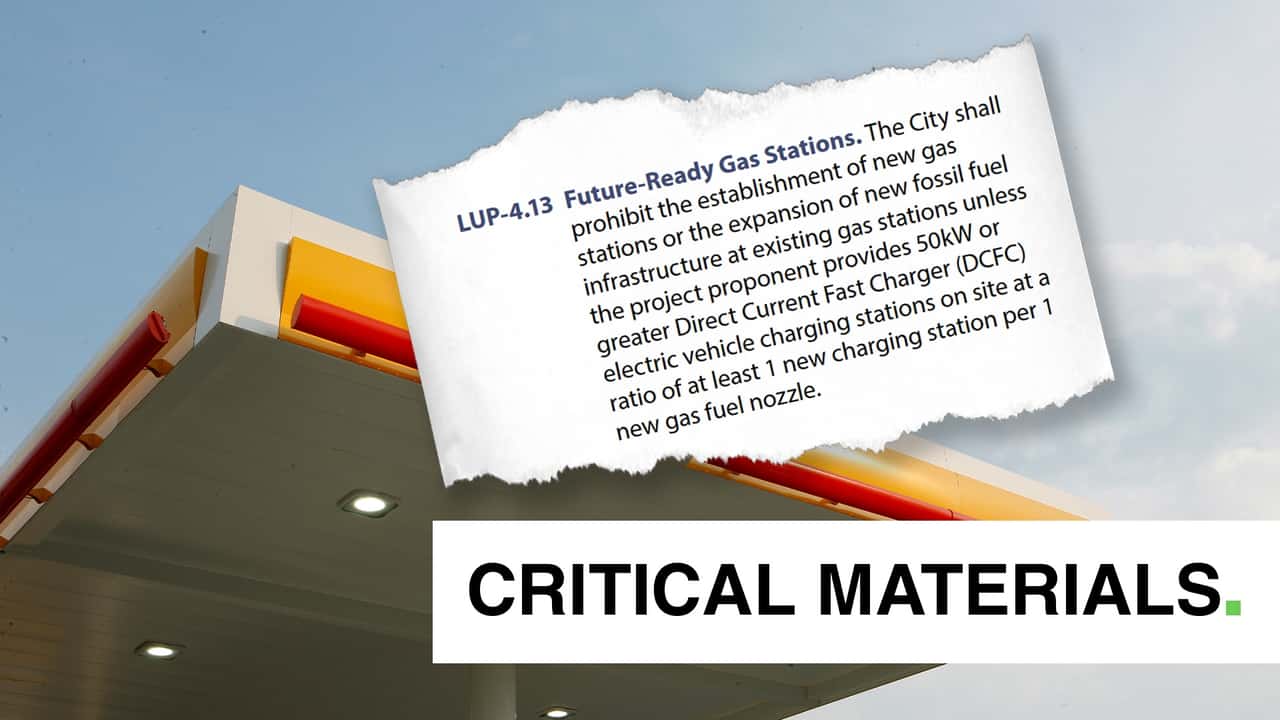Sacramento, California is considering a ban on the construction or expansion of gas stations in an effort to transition to cleaner vehicle support infrastructure. The proposal, part of the 2040 Sacramento General Plan, would also require existing gas stations to install DC Fast Chargers rated at a minimum of 50 kilowatts. Several other cities in California, as well as other major metropolitan areas in the country, have already implemented or proposed similar bans. Critics argue that these bans disproportionately harm small, minority-owned businesses and consumers. However, the move signals a growing trend towards phasing out combustion cars in favor of electric vehicles (EVs) and alternative fuels like synthetic fuel.
Ford has joined Tesla in warning about the threat of Chinese EVs to the domestic auto industry. Ford’s COO of the electrified Model e business unit, Marin Gjaja, referred to the Chinese automakers as a “colossal strategic threat” due to their advanced EV technology and potentially lower prices. Ford fears that Chinese automakers could flood the US market with affordable electric cars, forcing domestic automakers to adapt and innovate to remain competitive. The United Auto Workers union has also expressed concerns about Chinese automakers gaining access to the US market through Mexico and potentially undermining domestic automakers.
The US has issued $135 million in point-of-sale tax credits for electric vehicles in 2024 so far. The reform to the EV tax credit allows for the credit to be applied at the time of sale, providing an upfront discount for buyers. This has resulted in strong demand for EVs, with more than 25,000 time of sale reports submitted to the Internal Revenue Service between January 1 and February 6. However, the number of qualifying EV models is limited due to protectionist component sourcing requirements.
As gas stations potentially decrease in number, it indicates that the era of the combustion car is approaching its end. In the next few decades, there will likely be a significant reduction in combustion cars on the road as the market shifts towards battery-electric powertrains. This raises questions about the future value and viability of gas-powered cars, including modern classics like the Toyota Supra and Nissan Z. Car owners may need to consider whether to keep, convert, or sell their gas-powered vehicles in anticipation of an EV-dominated future.
Potential Ban on New Gas Stations in Sacramento
The city of Sacramento is currently considering a controversial proposal that could lead to a ban on the construction of new gas stations within its limits. The proposal, aimed at addressing environmental concerns and promoting sustainability, has sparked a heated debate among stakeholders and has the potential to bring about significant changes to the city’s landscape.
At the forefront of this issue is the growing awareness of the harmful effects of gasoline and diesel engines on the environment. With increasing concerns about climate change and the need to reduce carbon emissions, many cities around the world are taking steps to transition to cleaner and more sustainable energy sources. Sacramento aims to join this global movement by exploring the possibility of restricting the expansion of traditional fueling stations.
Proponents of the ban argue that it aligns with the city’s commitment to combating climate change. By limiting the construction of new gas stations, they believe Sacramento will encourage the adoption of electric vehicles (EVs) and other alternative forms of transportation that produce fewer emissions. Moreover, by incentivizing the use of EVs, the city can contribute to reducing air pollution, improving public health, and mitigating the adverse impacts of greenhouse gas emissions.
Interestingly, a report by the Union of Concerned Scientists revealed that EVs produce lower emissions even when charged from the grid mix with average carbon intensity. This suggests that the switch to EVs alone could significantly reduce the overall carbon footprint of transportation in Sacramento. Proponents argue that restricting new gas stations would stimulate investment in EV charging infrastructure, making EV adoption more accessible and convenient for the public.
However, opponents of the ban express concerns about the potential negative impacts on the local economy. Gas stations are not only places for refueling vehicles but also serve as important convenience stores, providing various services and products to customers. A ban on new gas stations would not only limit job opportunities in the construction industry but also potentially threaten employment in the retail sector. Additionally, opponents argue that a sudden ban could lead to a shortage of fuel availability, inconveniencing both residents and visitors.
Another issue raised by opponents is the feasibility of electric vehicles as a widespread replacement for traditional cars. They argue that electric vehicle technology is still in its nascent stage, and widespread adoption might not be practical at the moment. Concerns about the limited range of these vehicles, lack of sufficient charging infrastructure, and higher upfront costs are contributing factors to the resistance towards a ban on gas stations.
If the proposed ban receives approval, Sacramento will be the first major city in California to take such a unique step. It would join a few other smaller cities across the state that have already implemented similar restrictions. The city council is expected to weigh the potential environmental benefits against the economic and logistical challenges before making a final decision.
In conclusion, the proposed ban on new gas stations in Sacramento reflects the city’s commitment to promoting sustainable transportation and combating climate change. While proponents highlight the potential environmental benefits of reduced emissions and increased adoption of electric vehicles, opponents express concerns about the impact on the local economy and the feasibility of electric vehicle technology. As the city council deliberates on this proposal, it is crucial to strike a balance between achieving environmental goals and considering the wider implications for the community.

